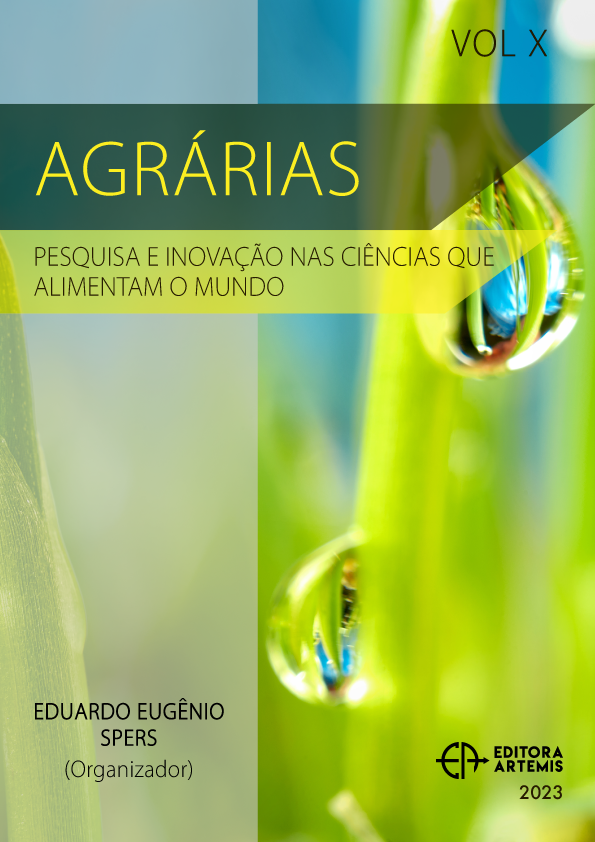
FERTILIZANTE DE LENTA LIBERACIÓN COMPLEMENTARIO AL FERTIRRIEGO Y SU EFECTO EN PRODUCCIÓN DE LIMA MEXICANA
El uso eficiente de los fertilizantes es una actividad relevante para incrementar productividad y rentabilidad en cítricos. Producciones de lima mexicana tienen problemas de bajos rendimientos. En gran medida por la pérdida de la fertilidad del suelo, ocasionando desbalances de nutrimentos en planta, igualmente un manejo nutricional deficiente ante un ambiente endémico de Huanglongbing. Para lograr mayor eficiencia en el manejo nutricional, se planteó evaluar el efecto en producción de lima mexicana con la aplicación de fertilizante de lenta liberación (FLL), complementario a un programa de nutrición vía fertirriego. El estudio se realizó en una plantación de tres años de establecimiento, ubicada en el municipio de Tecomán, Colima, México. Se evaluaron cinco tratamientos de fertilización, el primero consistió en la aplicación de fertirriego. El segundo empleó fertirriego más la adición de FLL, en dosis de 500 g planta -1 . El tratamiento tres fue fertirriego más 667 g planta -1 de FLL. Tratamiento cuatro, fue fertirriego más FLL 833 g planta -1 . Por último, un tratamiento que no recibió ningún tipo de fertilización al suelo. Como variables de respuesta se registraron el número de frutos cosechados por árbol, peso de frutos cosechados y el peso promedio por fruto, durante cinco cosechas. Se realizó una comparación de medias del total de cosechas mediante la prueba Tukey (α=0.05) y ANOVA. El tratamiento que no recibió ningún tipo de fertilización fue menos productivo y diferente al que solo empleo fertirriego. Tratamientos que recibieron FLL adicional al fertirriego, fueron los más productivos al igual que obtuvieron mayor tamaño de frutos. El tratamiento con fertirriego más 667 g planta -1 de FLL, generó mayor producción, tamaño y homogeneidad de frutos.
FERTILIZANTE DE LENTA LIBERACIÓN COMPLEMENTARIO AL FERTIRRIEGO Y SU EFECTO EN PRODUCCIÓN DE LIMA MEXICANA
-
DOI: 10.37572/EdArt_3011230552
-
Palavras-chave: calibre, frutos, valor comercial.
-
Keywords: caliber, fruits, commercial value.
-
Abstract:
The efficient use of fertilizers is a relevant activity to increase productivity and profitability in citrus. Mexican lime productions have problems of low yields. Largely due to the loss of soil fertility, causing nutrient imbalances in the plant, as well as poor nutritional management in an endemic environment of Huanglongbing. To achieve greater efficiency in nutritional management, it was proposed to evaluate the effect on Mexican lime production with the application of slow release fertilizer (FLL), complementary to a nutrition program via fertigation. The study was carried out in a three-year-old plantation, located in the municipality of Tecomán, Colima, Mexico. Five fertilization treatments were evaluated, the first consisted of the application of fertigation. The second used fertigation plus the addition of FLL, at a dose of 500 g plant -1 . Treatment three was fertigation plus 667 g plant -1 of FLL. Treatment four was fertigation plus FLL 833 g plant -1 . Finally, a treatment that did not receive any type of soil fertilization. As response variables, the number of fruits harvested per tree, weight of fruits harvested and the average weight per fruit, during five harvests, were recorded. A comparison of means of the total harvests was carried out using the Tukey test (α=0.05) and ANOVA. The treatment that did not receive any type of fertilization was less productive and different from that which only used fertigation. Treatments that received additional FLL to fertigation were the most productive and obtained larger fruit sizes. The treatment with fertigation plus 667 g plant -1 of FLL generated greater production, size and homogeneity of fruits.
-
Número de páginas: 9
- José Concepción García Preciado
- Silvia H. Carrillo Medrano
- Miguel A. Manzanilla Ramírez
- María Guzmán Martínez

